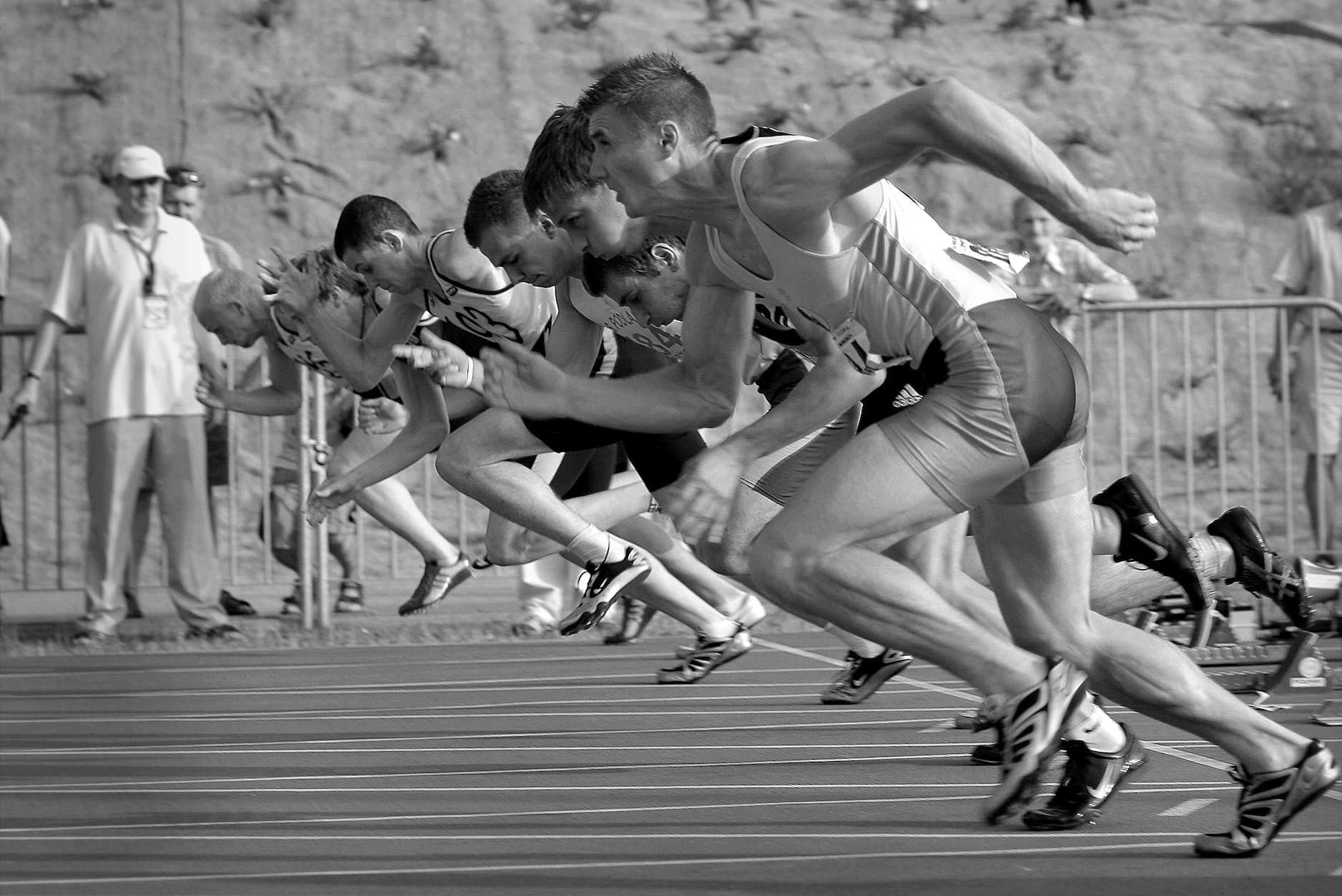Introduction to the psychological benefits of playing sports
The Psychological Benefits of Playing Sports are vast and varied. Engaging in sports not only improves our physical health but also plays a crucial role in enhancing our mental well-being. Participating in sports has been known to help individuals develop a wide range of essential life skills, such as discipline, focus, and resilience. One of the most significant benefits of playing sports, however, is the opportunity to experience the power of teamwork.
Teamwork is a crucial aspect of sports, as it fosters cooperation, communication, and mutual support among players. When individuals work together as a team, they can achieve far more than they could by working alone. This collaborative spirit can be applied to various aspects of life, making it an essential skill to cultivate. In this article, we will explore the psychological benefits of playing sports, with a particular focus on the importance of teamwork.
The importance of teamwork in sports
Teamwork is the foundation upon which successful sports teams are built. A team that works well together, communicates effectively, and supports each other is more likely to achieve its goals than a group of individuals working independently. The importance of teamwork in sports cannot be overstated, as it directly impacts the performance of the team and the individual players.
One of the most significant aspects of teamwork in sports is the development of trust among teammates. Trust is critical in any team sport, as players must rely on each other to perform their roles effectively. Trusting one’s teammates creates a sense of unity and cohesion, leading to improved performance and a more enjoyable sporting experience.
In addition to trust, teamwork in sports fosters a sense of responsibility among players. Each team member must take responsibility for their actions and ensure they are contributing positively to the team’s overall success. This sense of responsibility encourages players to work harder and strive for excellence, leading to personal growth and development.
Building trust and cooperation through sports
Trust and cooperation are essential components of teamwork in sports. Without trust, teammates cannot effectively rely on one another, and without cooperation, the team will struggle to accomplish its goals. Sports provide an ideal environment for individuals to build trust and cooperation, as they require players to work together towards a common objective.
One of the ways in which sports help to build trust is by providing opportunities for players to demonstrate their reliability and dependability. In team sports, players must rely on one another to fulfill their respective roles, and trust is built as teammates prove themselves to be reliable and consistent in their performance.
“Sports are the canvas upon which we paint our dreams, unite in spirit, and forge the strength of character that transcends the boundaries of the game.”
Cooperation, on the other hand, is cultivated through the shared experiences and challenges that players face while participating in sports. Players must learn to work together, communicate effectively, and support one another in order to overcome obstacles and achieve success. This process of collaboration and problem-solving strengthens the bonds between teammates and fosters a sense of camaraderie and unity.
Enhancing communication and social skills
Communication is the lifeblood of teamwork in sports. Effective communication allows teammates to coordinate their actions, share information, and offer support and encouragement. In team sports, players must learn to communicate clearly and efficiently, both verbally and non-verbally. This can involve anything from discussing tactics and strategies to offering constructive feedback and encouragement.
Developing strong communication skills through sports can have a lasting impact on an individual’s personal and professional life. Effective communication is a vital skill in many aspects of life, from building relationships to succeeding in the workplace. By honing their communication skills through sports, individuals can better navigate social and professional situations with confidence and ease.
In addition to communication skills, participation in sports helps individuals develop valuable social skills. Team sports bring together players from diverse backgrounds, providing an opportunity to interact with and learn from others. This exposure to different perspectives and experiences can foster greater empathy, understanding, and appreciation for others, leading to improved social cohesion and harmony.
Boosting self-esteem and confidence
Participating in sports can have a profound impact on an individual’s self-esteem and confidence. As players work together as a team, they develop a sense of self-efficacy and accomplishment, which can boost their overall self-worth. By contributing to the success of the team, individuals can experience a sense of pride and validation, knowing that their efforts are recognized and appreciated.
In addition to the sense of accomplishment that comes from contributing to a team’s success, sports also provide opportunities for personal growth and development. As players improve their skills and achieve personal milestones, they gain a sense of progress and mastery, which can bolster their self-esteem and confidence.

Moreover, the support and encouragement of teammates can play a significant role in boosting an individual’s self-confidence. Knowing that one’s efforts are valued and appreciated by others can instill a sense of self-worth and motivate individuals to continue striving for improvement and success.
Uncovering the Unseen Connections: A Deep Dive into Sports Similarities
Reducing stress and anxiety
Participation in sports can also have a positive impact on mental health by reducing stress and anxiety. Engaging in physical activity has been shown to release endorphins, which are chemicals in the brain that act as natural mood elevators. These endorphins can help to alleviate stress, promote relaxation, and improve overall mood.
In addition to the physiological benefits of physical activity, the social aspects of participating in sports can also help to alleviate stress and anxiety. Being part of a team provides individuals with a sense of belonging and social support, which can be invaluable in times of stress. Furthermore, the camaraderie and shared experiences of teammates can help to foster a sense of perspective and resilience, enabling individuals to better cope with stress and anxiety.
Developing leadership and problem-solving abilities
Team sports provide an ideal opportunity for individuals to develop leadership and problem-solving skills. As players work together to achieve a common goal, they must learn to navigate challenges, make decisions, and adapt to changing circumstances. This process of collaboration and problem-solving can help individuals to develop critical thinking skills, creativity, and adaptability.
Moreover, team sports often require players to take on leadership roles, both on and off the field. This can involve anything from organizing team events and activities to providing guidance and support to teammates. Developing effective leadership skills can have a significant impact on an individual’s personal and professional life, fostering greater self-confidence and the ability to inspire and motivate others.
Fostering a sense of belonging and camaraderie
One of the most powerful psychological benefits of playing sports is the sense of belonging and camaraderie that it can foster. Being part of a team provides individuals with a sense of identity and purpose, as they work together towards a common goal. This shared sense of purpose can create strong bonds between teammates, fostering a sense of unity and togetherness.
The friendships and connections formed through sports can have a lasting impact on an individual’s life, providing a source of support, encouragement, and motivation. In addition to the social benefits of these connections, the sense of belonging that comes from being part of a team can contribute to improved mental health and well-being.
How to encourage teamwork in sports
To unlock the full potential of teamwork in sports, it is important to cultivate an environment that encourages collaboration, communication, and mutual support. Coaches and team leaders can play a crucial role in fostering teamwork by emphasizing the importance of trust, communication, and shared responsibility.
One way to encourage teamwork is by focusing on the development of individual skills and abilities. By helping players improve their skills and gain confidence in their abilities, coaches can foster a sense of self-efficacy and progress, which can contribute to improved teamwork.
Additionally, creating opportunities for team bonding and shared experiences can help to strengthen the bonds between teammates, fostering a sense of unity and camaraderie. This can involve anything from team-building exercises and activities to simply spending time together outside of practice and competition.
Witnessing the Evolution: How Stephen Curry is Redefining Basketball
Exploring the Dynamics of Unity: An In-depth Look at Men’s Team Sports
Conclusion: Unlocking the full potential of teamwork in sports
The psychological benefits of playing sports are vast and varied, with one of the most significant being the opportunity to experience the power of teamwork. By cultivating an environment that encourages trust, cooperation, and communication, coaches and team leaders can help to unlock the full potential of teamwork in sports.
The importance of teamwork in sports cannot be overstated, as it directly impacts the performance of the team and the individual players. By fostering teamwork, individuals can develop essential life skills, such as trust, communication, and leadership, which can have a lasting impact on their personal and professional lives. Moreover, the sense of belonging and camaraderie that comes from being part of a team can contribute to improved mental health and well-being. By embracing the power of teamwork, individuals can experience the true psychological benefits of playing sports.
The Science Behind Muscle Recovery: Effective Strategies for Post-Workout Healing





